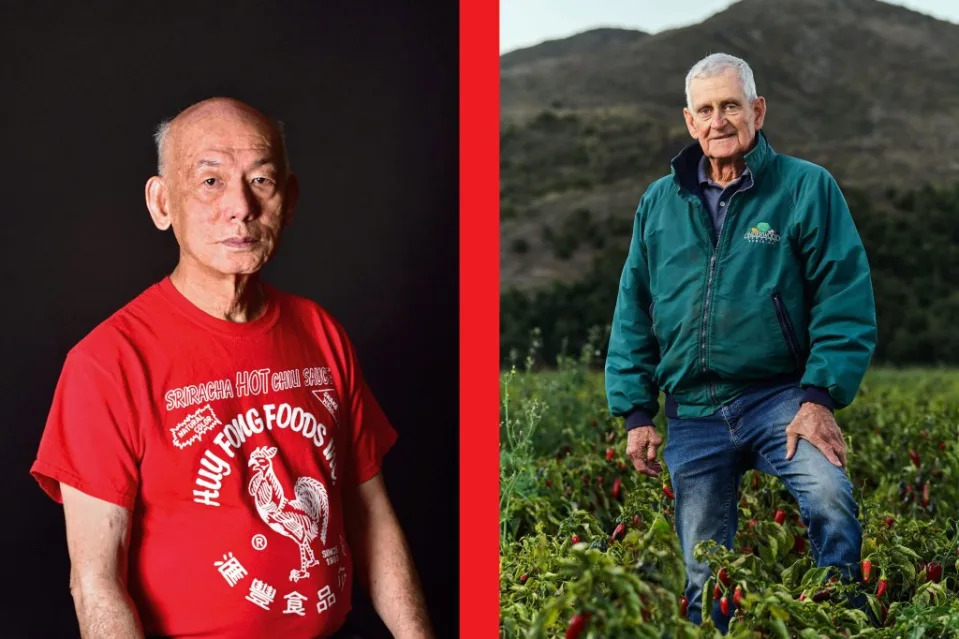
From Toronto Life magazine: “Amira and Nadya Gill were well-known on campus. The ambitious twins seemed to excel at everything they did. Amira was pursuing her master’s in civil engineering, and she was a reservist in the Canadian Armed Forces. Nadya, a former NCAA soccer player, juggled her duties as an assistant coach for the women’s soccer team with law school, and she was an associate editor for the Queen’s Law Journal, and a board member for the school’s student law society. Throughout their studies, they won a number of awards and scholarships. And everyone knew they were Indigenous, a status they wore with pride. But then some holes started appearing in their stories.”
He died in a Jewish ghetto. How did his art end up on a bench in San Francisco?

From the SF Standard: “Jermaine Joseph, a city employee for the Port of San Francisco, was doing his maintenance rounds at Crane Cove Park on a sunny morning in May 2022 when he spotted something unusual: nearly 50 abandoned pieces of art arranged on a cement bench. “It was really strategically set out in a nice pattern,” he said. “And looking at the frames and the paper, you could tell someone put a lot of time into them.” Joseph knew the artworks had not been there for long—no morning dew had collected on them. But there was no evidence of an owner anywhere on-site. Thirty-eight of the 48 pieces—which included drawings, prints and paintings crafted with an obviously skilled hand—had variations of the name Ary Arcadie Lochakov.”
Note: This is a version of my personal newsletter, which I send out via Ghost, the open-source publishing platform. You can see other issues and sign up here.
Weight-loss drug Ozempic was inspired by Gila monster venom

From The Conversation: “Scientists found that a hormone in the Gila monster’s venom called exendin-4 could be used to treat type 2 diabetes. Exendin-4 is similar to a hormone found in humans called GLP-1, which is released after eating and is important for controlling blood sugar levels in humans. Research into extendin-4 yielded semaglutide, a derivative of the molecule but one that will stay in the body for far longer. And that’s how Wegovy and Ozempic, which both contain semaglutide, came into being. The Gila monster is not the only reptile to inspire groundbreaking drugs: the venom of the Brazilian pit viper inspired a class of drugs known as ACE inhibitors.”
Editor’s note: If you like this newsletter, please share it with someone else. And if you really like it, perhaps you could subscribe, or contribute something via my Patreon. Thanks for being a reader!
When people were convinced that killing vampires would cure tuberculosis

From Now I Know: “Today, tuberculosis is treatable, but for centuries, it was widespread and often fatal; in the mid-1800s, according to the CDC, tuberculosis killed one out of every seven people living in the United States and Europe. Understandably, the people of that time period did everything they could to stop the spread of TB, such as sending patients to warmer climates, inhaling turpentine, massaging themselves with vinegar — and by digging up dead bodies and burning their hearts. For centuries, TB was known as “consumption,” so named because patients would suffer extreme weight loss, develop horrible coughs, and become pale, as if the life was being sucked out of them — which, coincidentally, sounded like something pretty vampiric.”
The epic feud that shook the foundations of the Sriracha empire

From Yahoo News: “On the day that the foundation of Craig Underwood’s business collapsed, he was on vacation in Hawaii. It was November 2016, and the California farmer had just completed a perfect pepper harvest—another high point for a business that was the sole supplier of juicy red jalapeños for sriracha, Huy Fong Foods’ iconic fiery-red chili-garlic sauce. The sauce was the brainchild of David Tran, who had first devised the recipe and sold the stuff in L.A. in 1980 as a Vietnamese refugee. Tran and Underwood had been partners and friends for 30 years. Then Underwood got the call that the relationship had ended due to an argument over payment for next season’s crop.”
Mrs Sherlock Holmes and the other female sleuths who were written out of history
From The Guardian: “Fresh research has revealed that, in real life, women have been at the sleuthing game for as long as men. And they were, in fact, often more sought-after due to their particular skillsets. Prominent among them is the trained opera singer Annette Kerner, who began her undercover career in the 1940s after flirting with a passenger on a channel crossing who turned out to be an intelligence officer observing a suspected spy. He asked her to get hold of the suspect’s suitcase, which Kerner claimed she calmly did. After founding the Mayfair Detective Agency, Kerner became expert at donning disguises, transforming at will into a charlady, a society hostess or an opium addict, with the help of a few deft costume alterations.”
Genghis Khan really didn’t want his burial site to be found
Acknowledgements: I find a lot of these links myself, but I also get some from other newsletters that I rely on as “serendipty engines,” such as The Morning News from Rosecrans Baldwin and Andrew Womack, Jodi Ettenberg’s Curious About Everything, Dan Lewis’s Now I Know, Robert Cottrell and Caroline Crampton’s The Browser, Clive Thompson’s Linkfest, Noah Brier and Colin Nagy’s Why Is This Interesting, Maria Popova’s The Marginalian, Sheehan Quirke AKA The Cultural Tutor, the Smithsonian magazine, and JSTOR Daily. If you come across something interesting that you think should be included here, please feel free to email me.
